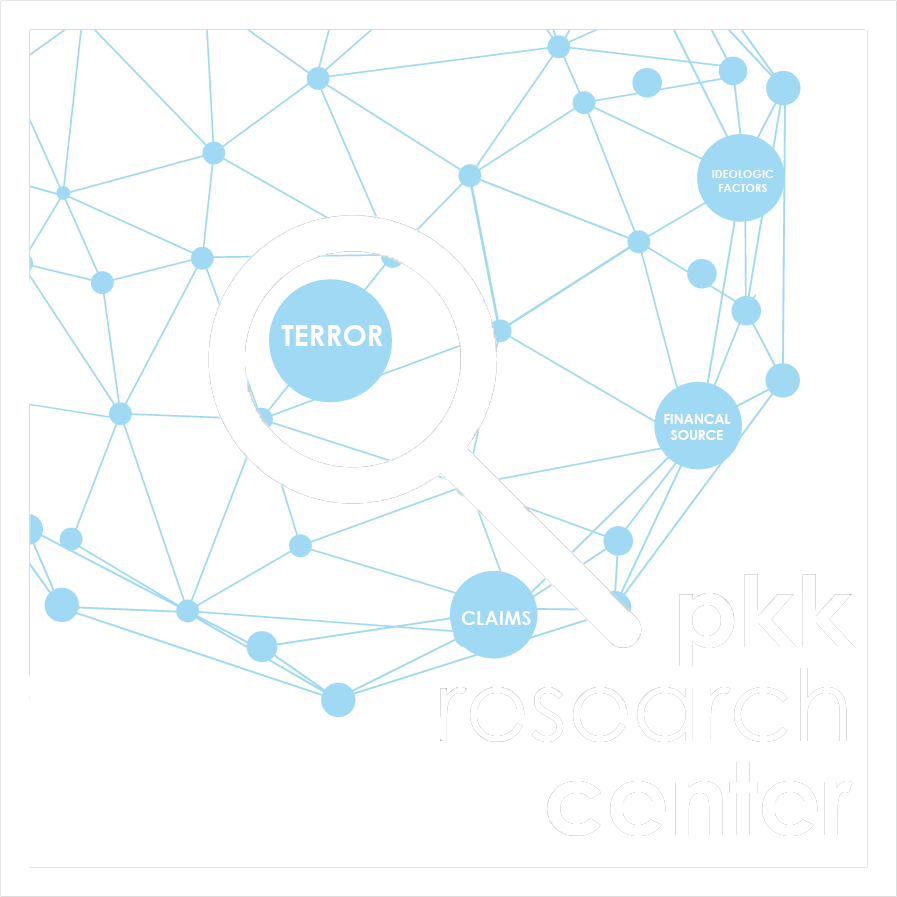PKK – PYD/YPG Interconnection
Serving as the Syrian offshoot of PKK (Kurdistan Workers’ Party), PYD (Democratic Union Party) share the leadership with PKK, own the same organizational structure, strategy and tactics and military structure and use the same propaganda instruments, financial resources and training camps with PKK.
PYD activities are carried out under direct command and control of core PKK group based in Qandil, Iraq. Relations between the leaders of PKK and PYD date back to 1980s when PKK started to build a support base among the Kurds in Syria. The close acquaintance between the PYD leaders Barzani Muhammed and Salih Muhammed Muslim and, PKK leaders Murat Karayılan and Abdullah Öcalan goes long back in time.
PYD’s raison d’être is explicitly specified in its statutes: “PYD considers Abdullah Öcalan as its own leader, regards the People’s Congress as the supreme body embracing and uniting the (so-called) people of Kurdistan and adopts KCK-West as the democratic system for the Kurdish people in Syria.”
YPG acts as the PYD’s armed apparatus in Syria.
PKK maintains command and control over PYD by deploying its own members within PYD. Especially after the crisis in Syria, PKK members were assigned to PYD to fight in their ranks.
Reports by international organizations also highlight the intrinsic links between PKK and PYD:
Here below are some of the international reports drawn on the PKK-PYD interaction:
- The article ‘The PYD& The PKK: Two Sides of a Coin’ published on the US-based blog ‘http://thehill.com’ underlines that ‘PKK and PYD are the different names of the same organization’. Article also quotes O. Öcalan who stated the following: “I founded PYD as I did PJAK (PKK’s Iranian arm). We did not use the word ‘Kurdistan’ in the party’s title since we did not want to provoke the Syrian regime. The PYD is connected to the PKK and acts upon PKK orders. We founded the PYD in Qandil. We trained the cadres in Qandil.”
- US Secretary of Defense Ashton CARTER ‘confirmed the substantial ties between PKK/KCK and PYD/YPG’ during a testimony before the Senate on April 28, 2016.
- ‘Dead Men Tell No Lies: Using Killed in Action (KIA) Data to Expose PKK’s Regional Shell Game’, article by Andrew Self and Jared Ferris published on the ‘Defense against Terrorism Review’, ‘NATO Center of Excellence Defense Against Terrorism’ annual publication, highlighted the following:
“A majority of the terrorists fighting in the ranks of PYD/YPG at Syrian civil war had been Turkish-, Iraqi- and Iranian-born PKK members while 16% of them had been Turkish-born fighters. Places of birth and places of recruitment on KIA announcements reveal the cross-organizational deployment of cadres between PKK, PYD and YPG.”
- The Spanish police launched an operation against certain individuals who recruited and facilitated the travels of would-be fighters to Iraq and Syria who sought to join the ranks of YPG. The charges against the accused listed in the case file which was concluded in January 2017 included ‘supporting PKK-affiliated structures and recruiting members for such groups, providing training, facilitating the travels of those who completed their training to the war zones to fight for YPG’. Spanish National Court statement on the issue described YPG as ‘the auxiliary armed group of PKK based in the north of Syria which shared leaders with PKK and acted upon direct orders from PKK which is a proscribed terrorist organization.’
